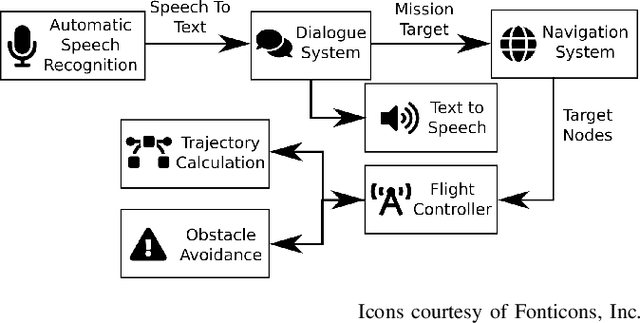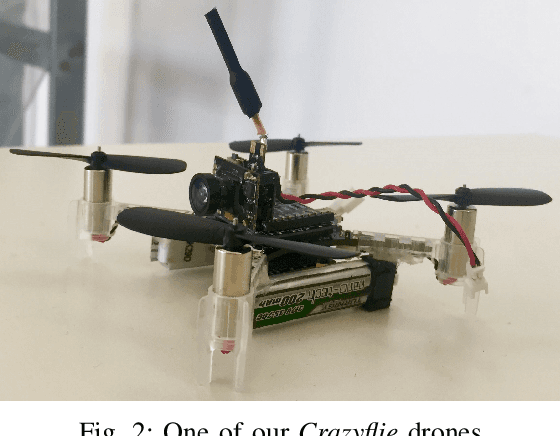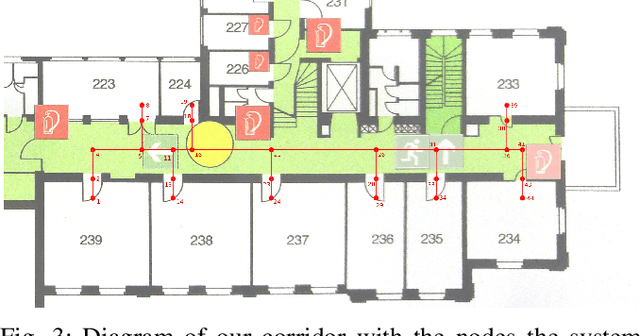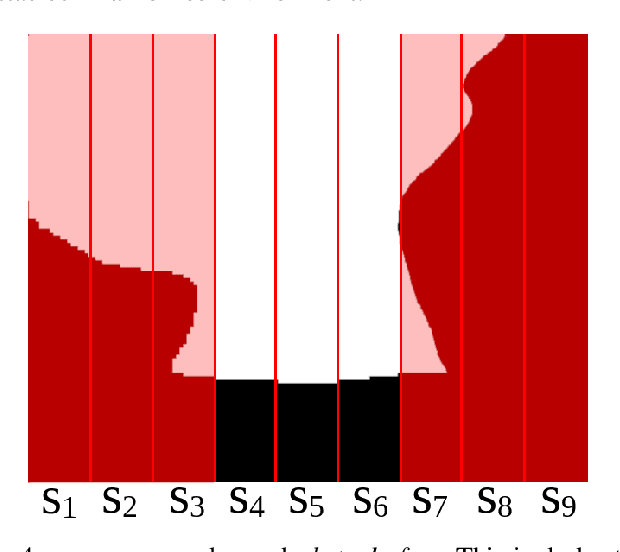Tino Fuhrman
An Interactive Indoor Drone Assistant
Dec 09, 2019



Abstract:With the rapid advance of sophisticated control algorithms, the capabilities of drones to stabilise, fly and manoeuvre autonomously have dramatically improved, enabling us to pay greater attention to entire missions and the interaction of a drone with humans and with its environment during the course of such a mission. In this paper, we present an indoor office drone assistant that is tasked to run errands and carry out simple tasks at our laboratory, while given instructions from and interacting with humans in the space. To accomplish its mission, the system has to be able to understand verbal instructions from humans, and perform subject to constraints from control and hardware limitations, uncertain localisation information, unpredictable and uncertain obstacles and environmental factors. We combine and evaluate the dialogue, navigation, flight control, depth perception and collision avoidance components. We discuss performance and limitations of our assistant at the component as well as the mission level. A 78% mission success rate was obtained over the course of 27 missions.
 Add to Chrome
Add to Chrome Add to Firefox
Add to Firefox Add to Edge
Add to Edge